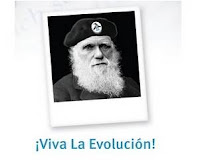Recentemente via um chat, um americano queria me provar que Einstein acreditava em deus.
Esse é um dos grandes mitos difundidos pelos deistas, a religiosidade de Einstein. Talvez o mito se deva a capacidade do cientista em criar metáforas com aspectos religiosos. Os deistas pegaram as brincadeiras, ou quem sabe as levaram a serio e criaram o mito de um Einstein crente em algo do estilo de um "deus".
Pouco antes de sua morte, Einstein escreve uma carta (em 1954), recentemente leiloada, que desabilita todas as alegações (muito utilizadas por deistas), de que era um indivíduo religioso.
Palavras do físico que era considerado judeu (seguidor do judaismo), e que centra um pouco do foco nessa religião:
“A palavra Deus para mim é nada mais que a expressão e produto da fraqueza humana, a Bíblia é uma coleção de lendas honradas, mas ainda assim primitivas, que são bastante infantis”
“Para mim, a religião judaica, como todas as outras, é a encarnação de algumas das superstições mais infantis. E o povo judeu, ao qual tenho o prazer de pertencer e com cuja mentalidade tenho grande afinidade, não tem qualquer diferença de qualidade para mim em relação aos outros povos.”
“Até onde vai minha experiência, eles não são melhores que nenhum outro grupo de humanos, apesar de estarem protegidos dos piores cânceres por falta de poder. Mas além disso, não consigo ver nada de ‘escolhido’ sobre eles”.
PS. a tradução vai demorar alguns dias, pois estou com muito pouco tempo.
… I read a great deal in the last days of your book, and thank you very much for sending it to me. What especially struck me about it was this. With regard to the factual attitude to life and to the human community we have a great deal in common.
… The word God is for me nothing more than the expression and product of human weaknesses, the Bible a collection of honourable, but still primitive legends which are nevertheless pretty childish. No interpretation no matter how subtle can (for me) change this. These subtilised interpretations are highly manifold according to their nature and have almost nothing to do with the original text. For me the Jewish religion like all other religions is an incarnation of the most childish superstitions. And the Jewish people to whom I gladly belong and with whose mentality I have a deep affinity have no different quality for me than all other people. As far as my experience goes, they are also no better than other human groups, although they are protected from the worst cancers by a lack of power. Otherwise I cannot see anything ‘chosen’ about them.
In general I find it painful that you claim a privileged position and try to defend it by two walls of pride, an external one as a man and an internal one as a Jew. As a man you claim, so to speak, a dispensation from causality otherwise accepted, as a Jew the priviliege of monotheism. But a limited causality is no longer a causality at all, as our wonderful Spinoza recognized with all incision, probably as the first one. And the animistic interpretations of the religions of nature are in principle not annulled by monopolisation. With such walls we can only attain a certain self-deception, but our moral efforts are not furthered by them. On the contrary.
Now that I have quite openly stated our differences in intellectual convictions it is still clear to me that we are quite close to each other in essential things, ie in our evalutations of human behaviour. What separates us are only intellectual ‘props’ and ‘rationalisation’ in Freud’s language. Therefore I think that we would understand each other quite well if we talked about concrete things. With friendly thanks and best wishes.
Yours, A. Einstein

Nenhum comentário:
Postar um comentário